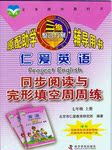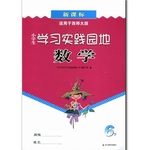题目内容
阅读下列短文,从每题所给的四个选项(A、B、C和D)中,选出最佳选项,并在答题卡上将该项涂黑。
Dear Dani, I have two best friends and they’re always leaving me out! They never invite me to anything. What can I do? Tom Dani says: Groups of three can be very difficult because one person often gets left out. Your friends may not realize how you feel. Talk to them about this and agree to plan the next outing together. With a bit of effort, a group of three can be a wonderful friendship! |
Dear Dani, I told my friend a secret, but then I found out she told it to somebody else. What can I do? Daisy Dani says: We all make mistakes so give your friend another chance. But tell her that your secret is important to you and that she must not do this again. If your friend finds it hard to keep a secret, be careful what you tell her in future. |
Dear Dani, I’m friends with a boy, but some girls keep laughing at me about it. Can’t girls be friends with boys as well? Mary Dani says: Of course girls can be friends with boys. Some girls laugh at this because they don’t really know any boys. Carry on enjoying your friendship. If the girls got to know this boy, they might stop teasing you. Why not invite one or two of them along next time you meet him? |
1.What’s worrying Tom?
A. Her friend keeps telling lies.
B. Her friend are always leaving him out.
C. Her friend does not believe her.
D. Her friend reads her terrible stories.
2.Dani suggests that Tom _____.
A. leave his two friends
B. tell his friends his thoughts
C. go on an outing with one of his friends
D. invite another to join his group of friends
3.Whose friend has a big mouth?
A. Tom. B. Mary. C. Daisy. D. Dani
4.The underlined word “teasing” in the last paragraph probably means “_____”.
A. making fun of B. hating
C.avoiding D. taking pity on
 仁爱英语同步练习册系列答案
仁爱英语同步练习册系列答案 学习实践园地系列答案
学习实践园地系列答案

 part of his life, but I never spent the ____ in talking with him about them. The photos of my mom with her close ____ made me realize her life before she was my mom. I had been so____ running my business to raise my own family that I ____ the chance to know about their past and experience.
part of his life, but I never spent the ____ in talking with him about them. The photos of my mom with her close ____ made me realize her life before she was my mom. I had been so____ running my business to raise my own family that I ____ the chance to know about their past and experience.